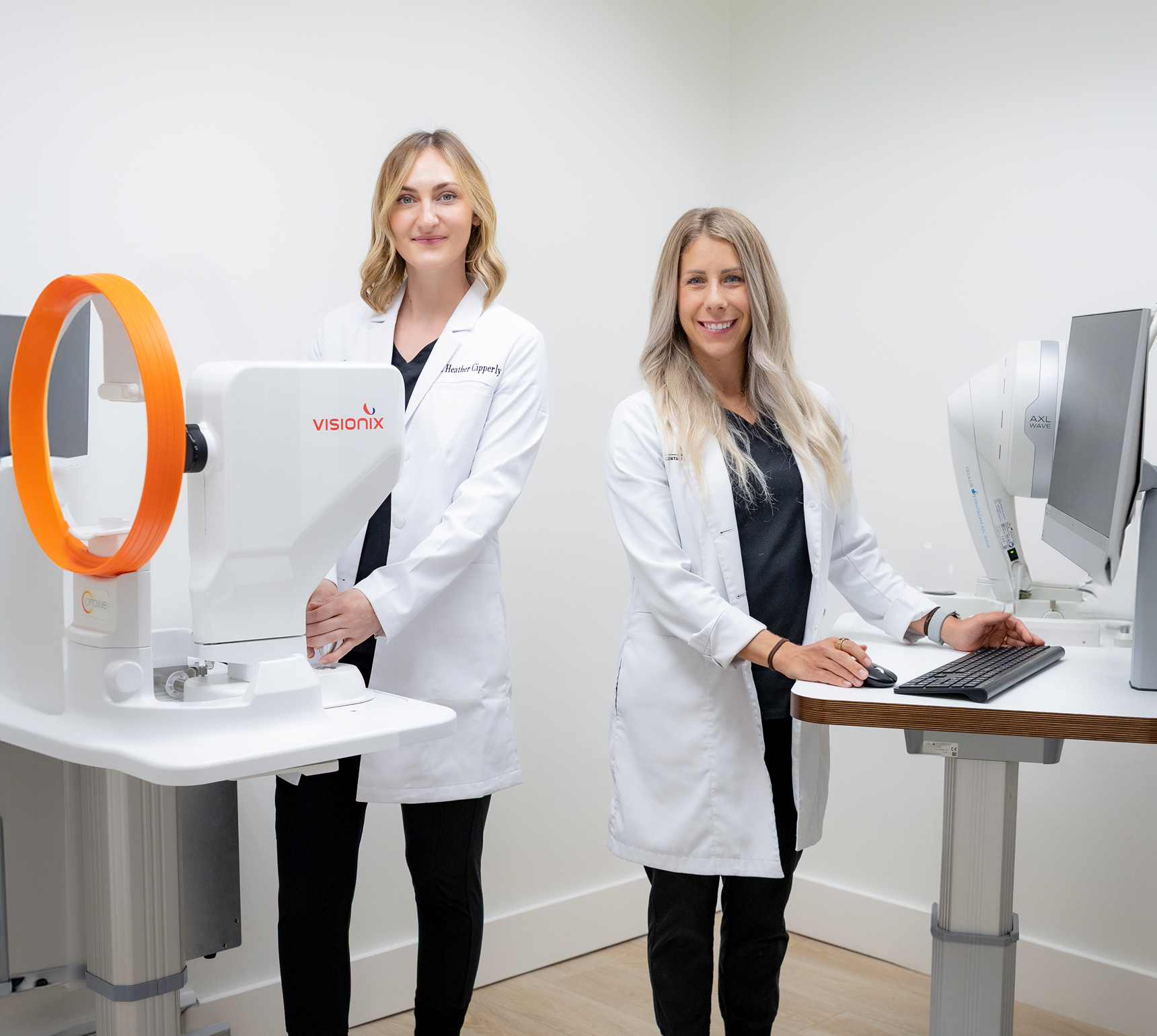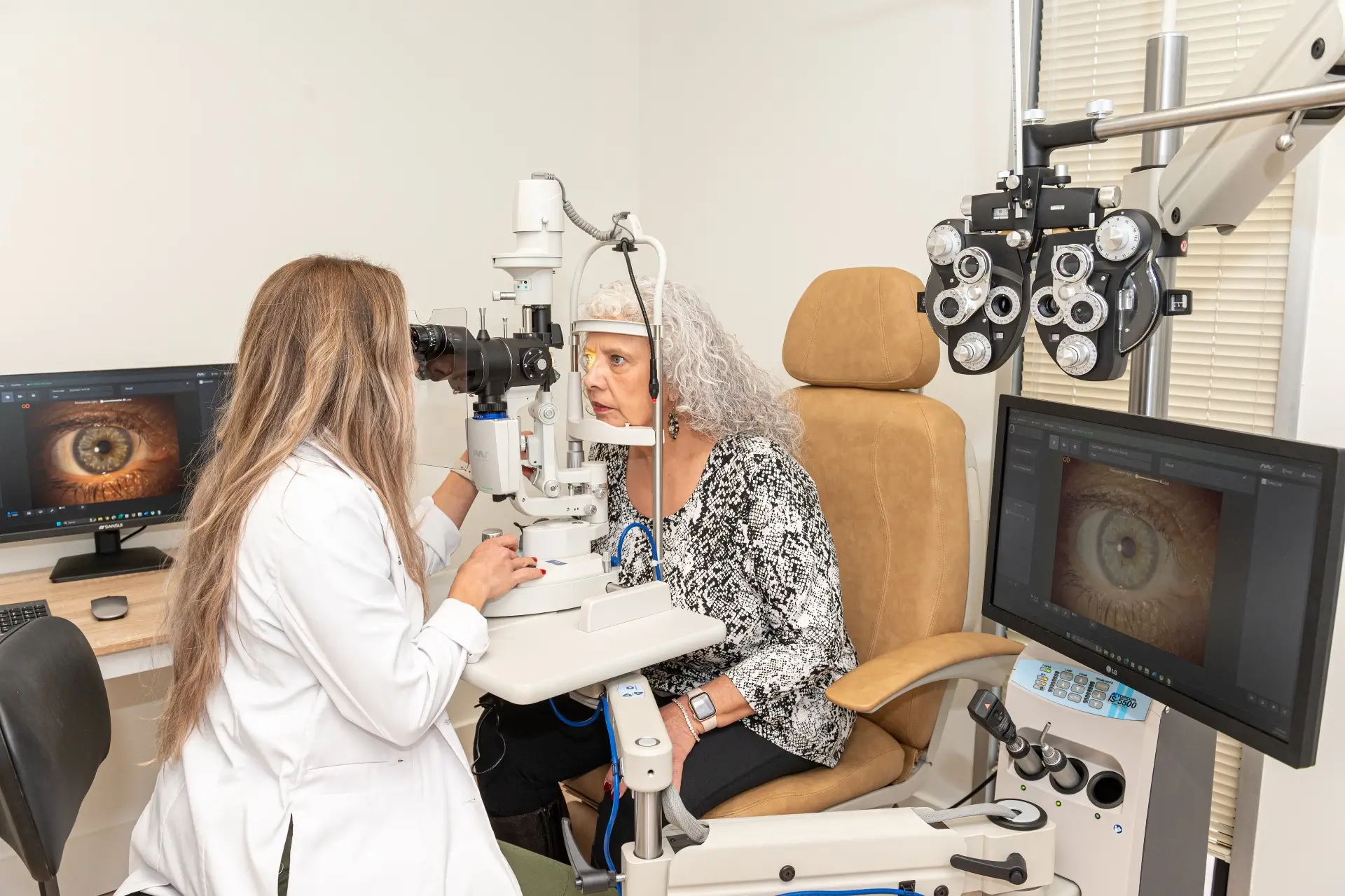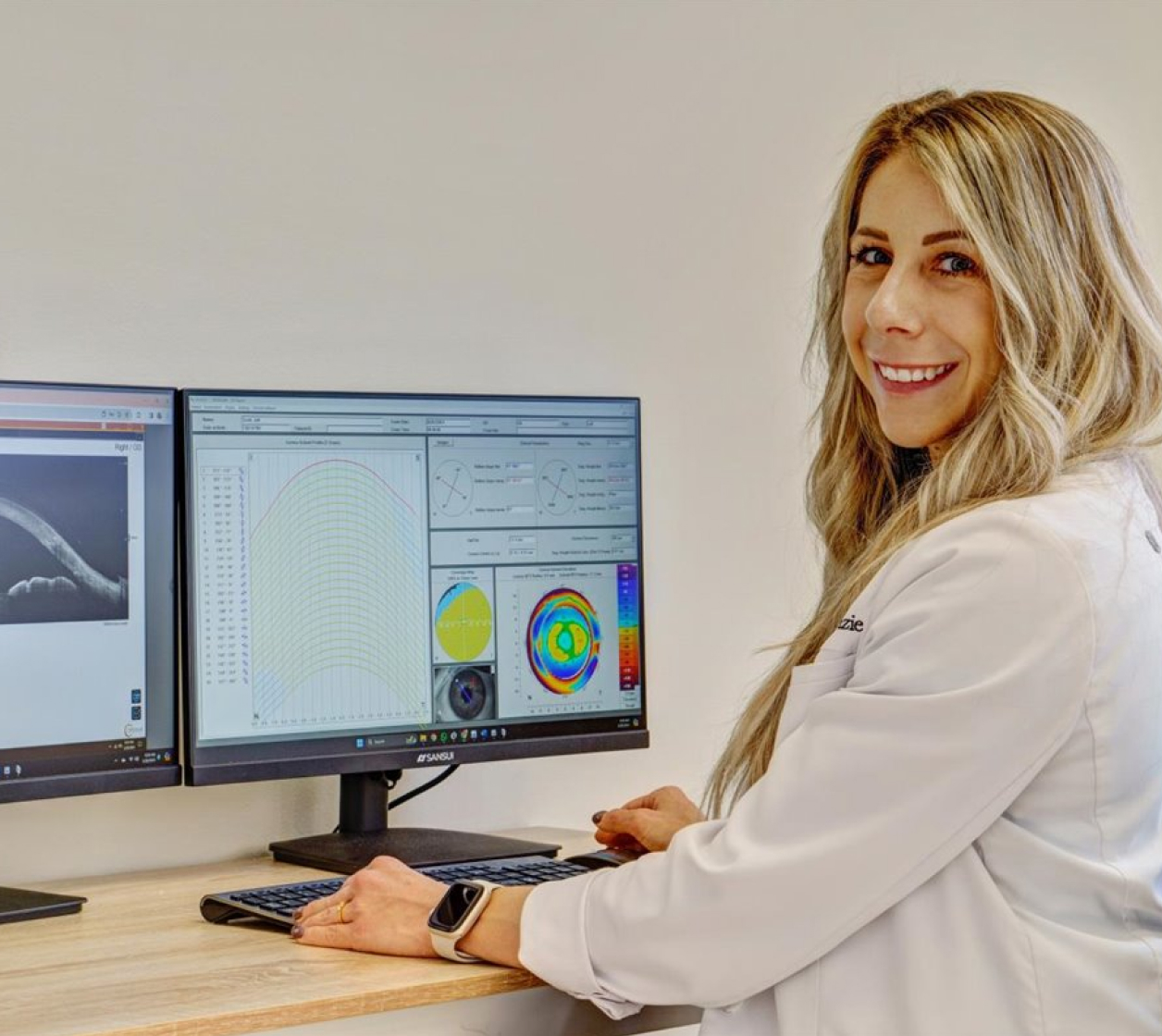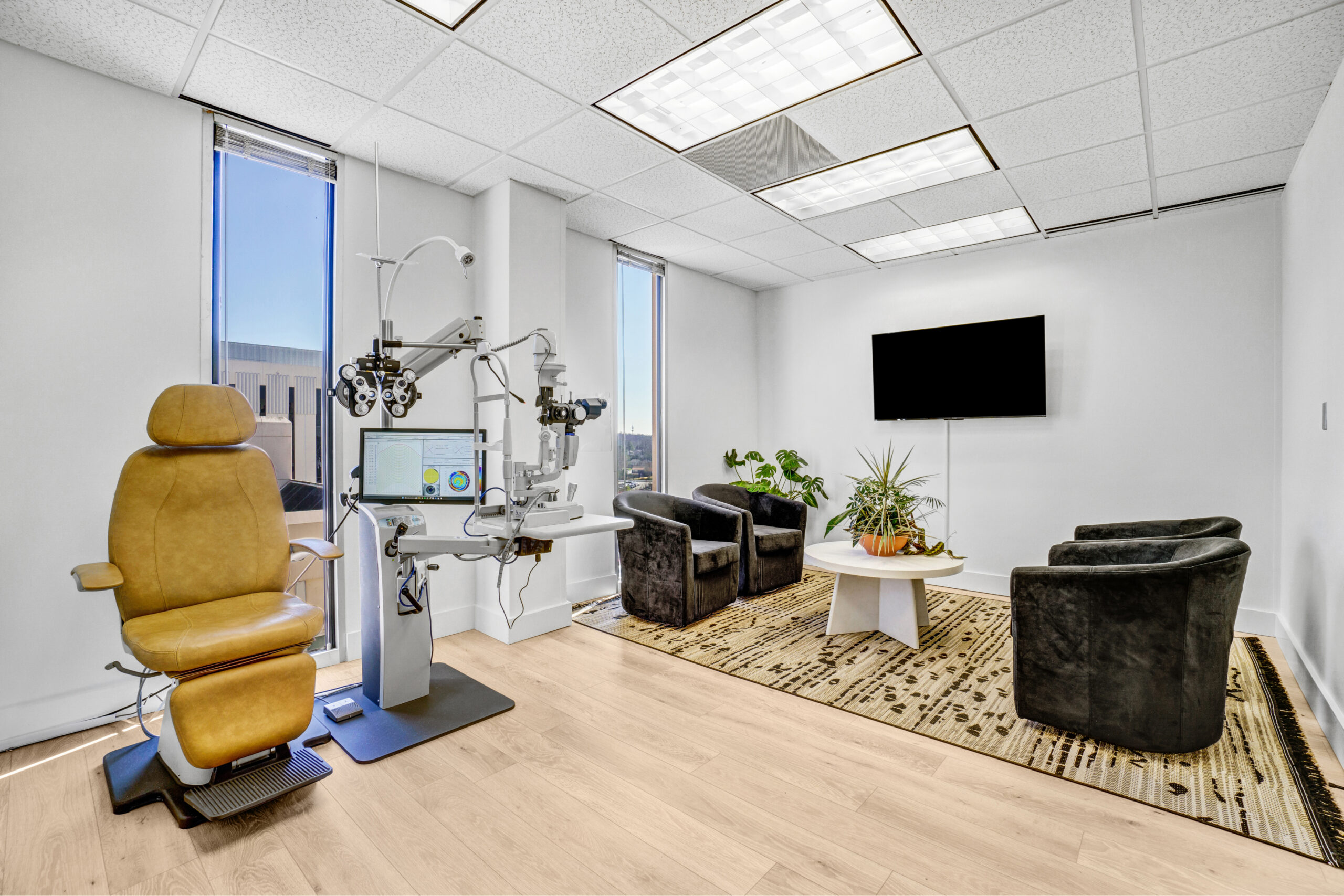
Managing Post-LASIK Ectasia with Specialty Contact Lenses
Post-LASIK ectasia is an uncommon yet significant complication that may develop when the cornea weakens and bulges after LASIK surgery. Patients often notice vision distortion, glare, halos, or poor clarity that glasses cannot correct. At the Charlotte Contact Lens Institute, we help restore functional vision for patients with ectasia using advanced specialty lens designs.
- What Exactly is Post-LASIK Ectasia?
While LASIK reshapes the cornea to improve eyesight, in some individuals the cornea gradually becomes unstable. This condition, called post-LASIK ectasia, leads to thinning and steepening of the cornea, resembling keratoconus. The result is irregular astigmatism and a progressive decline in vision that standard glasses or soft lenses usually cannot address.
- Key Symptoms
- Blurry or distorted vision
- Halos and glare around lights, especially at night
- Double or ghost images
- Frequent eye strain or headaches
- Gradual worsening of vision quality


- Treatment Options We Offer
Our clinic uses state-of-the-art technology such as Pentacam AXL Wave, scleral topography, and wavefront aberrometry to map the cornea in detail. With this data, we design custom freeform scleral lenses or EyePrintPRO lenses that vault over the cornea and create a smooth optical surface. These lenses significantly improve clarity, contrast, and comfort.
- Who May Benefit?
Most patients with post-LASIK ectasia, whether in the early or advanced stage, can benefit from specialty contact lenses. If you are still struggling with distorted vision after LASIK and glasses aren’t enough, a specialty lens consultation can determine the most effective approach.
- Why Patients Trust the Charlotte Contact Lens Institute
Our practice is fully dedicated to specialty contact lenses and challenging corneal conditions. With advanced diagnostics and highly personalized fittings, we routinely help patients who were told elsewhere that no further options were available.


- Frequently Asked Questions
Can specialty contact lenses reverse ectasia?
No, they cannot cure ectasia. However, they can restore vision by masking corneal irregularities.
How soon can treatment begin after diagnosis?
We can start the evaluation process immediately after diagnosis to preserve and enhance visual quality.
Are scleral lenses comfortable to wear?
Yes. Since scleral lenses rest on the less sensitive sclera (white part of the eye), most patients adapt quickly and find them very comfortable.